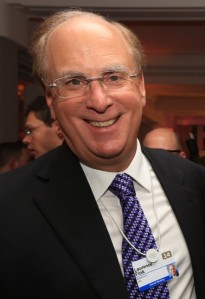Today, BlackRock’s Larry Fink issued his 2021 letter to CEOs. As usual, the New York Times devoted significant coverage to it. Again, we at SGI are heartened by Fink’s words. I’ll call your attention to this nugget near the letter’s conclusion:
Questions of racial justice, economic inequality, or community engagement are often classed as an “S” issue in ESG conversations. But it is misguided to draw such stark lines between these categories. For example, climate change is already having a disproportionate impact on low-income communities around the world – is that an E or an S issue? What matters is less the category we place these questions in, but the information we have to understand them and how they interact with each other. Improved data and disclosures will help us better understand the deep interdependence between environmental and social issues.
I loved this line: “And now, business leaders and boards will need to show great courage and commitment to their stakeholders.”
At the same time, I am reminded of the “Peanuts” comic. Time and again, Lucy tells Charlie Brown that she will hold a football while he runs up to kick it. Initially, Charlie Brown usually refuses to kick it, not trusting Lucy. Then, Lucy says something to persuade Charlie Brown to trust her. Charlie Brown runs up to kick the ball, but at the very last moment before he can kick it, Lucy removes the ball. As a consequence, Charlie Brown flies into the air, falls down on his back, and hurts himself.
We’ve seen these letters each year from Fink, and we have written about our reactions to them before. Nonetheless, when it comes to voting their proxies, BlackRock, like Lucy, yanks the ball away (See: BlackRock voted against climate resolutions over 80% of the time in 2020). To be honest, I hope that I am wrong. I pray for an abundance of “great courage and commitment.” Time will tell if 2021 will be any different.



